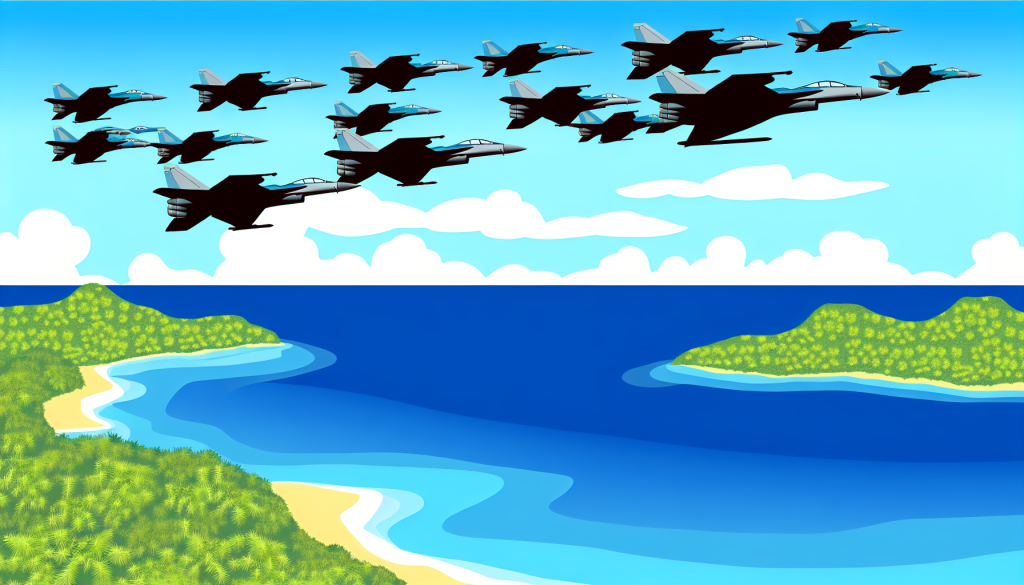Tensions Rise: U.S. Military Operations Targeting Caribbean Drug Cartels
Overview of the Military Operation
On Friday, in a move that many deem controversial and provocative, U.S. President Donald Trump initiated orders for a military operation aimed at drug cartels in the Caribbean. The decision comes amidst escalating tensions in the region, drawing both critiques and concerns from various quarters about the ramifications such actions could ignite.
Deployment of Military Assets
A fleet of 10 F-35 fighter jets has reportedly been deployed to Puerto Rican airspace. This high-tech aerial force is part of a broader strategy by the U.S. government to combat drug trafficking in collaboration with regional authorities. The operation is said to be a response to claims made earlier in the week concerning a vessel allegedly operated by the Venezuelan gang Tren de Aragua, noted for its drug trafficking activities. However, details about the specific evidence or legal justification for this military action remain vague.
Long-standing Goals of the Trump Administration
The Trump administration has consistently prioritized the crackdown on drug crime as a core component of its national security agenda. In this context, groups like Tren de Aragua have been designated as terrorist organizations, particularly during Trump’s second term. This designation aligns with larger efforts to disrupt networks perceived to facilitate the flow of narcotics into the United States.
Venezuela’s Response
Venezuelan President Nicolas Maduro has vocally condemned the U.S. military intervention, accusing the Trump administration of attempting regime change through military threats. Maduro’s criticisms are typical of a region historically wary of U.S. interventions and reflect a long-standing resentment towards perceived imperialistic tendencies. In a rare press briefing on Monday, he illustrated the threat posed by U.S. military forces deployed in close proximity to Latin American nations.
Recent Operations and Consequences
This latest military initiative follows a similar operation just days prior, where U.S. forces reportedly attacked a vessel believed to be transporting a large drug shipment from Venezuela. The operation resulted in the deaths of at least 11 individuals, raising concerns over the potential for further bloodshed and heightened military engagement. Analysts are alarmed by the possibility that such actions might foreshadow an expanded U.S. military presence in Latin America—an outcome likely to exacerbate local tensions.
Increased Naval Presence
In recent weeks, the U.S. has been ramping up its military position in the southern Caribbean. With at least seven warships and a nuclear-powered fast attack submarine deploying approximately 4,500 sailors and Marines to the region, the military build-up signals a concerted effort to implement the aggressive tactics outlined by the Trump administration against drug trafficking organizations.
Ground Operations and Preparations
The mission is spearheaded by the 22nd Marine Expeditionary Unit, which has been conducting various amphibious training and flight operations in southern Puerto Rico in preparation for imminent operations. These training exercises aim to ensure that U.S. forces are primed for swift and effective action as they face complex operational environments.
Conclusion
As U.S. military operations intensify in the Caribbean, the implications for both regional stability and international relations remain uncertain. The dual approach of aerial strikes and naval deployments reflects a broader strategy aimed at combating drug cartels, but the signs of escalating military engagement raise questions about the potential consequences for the nations involved.

